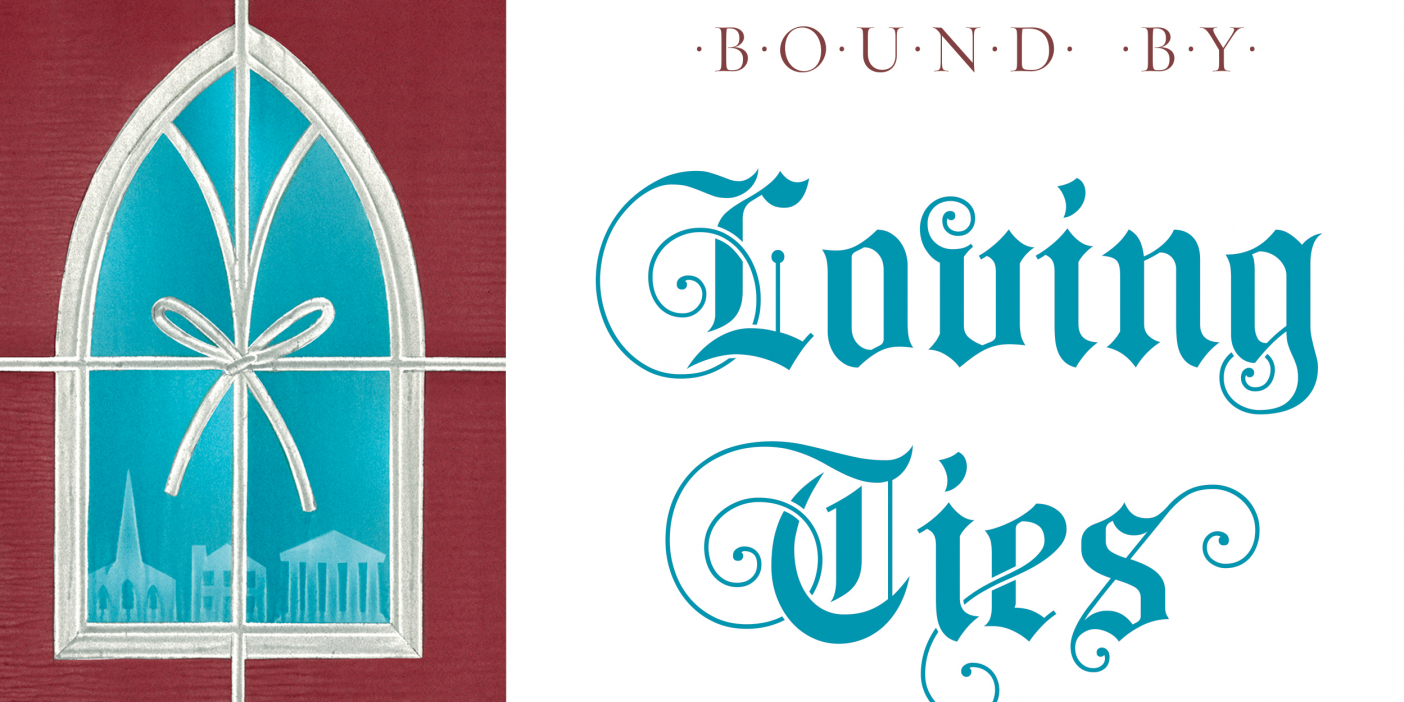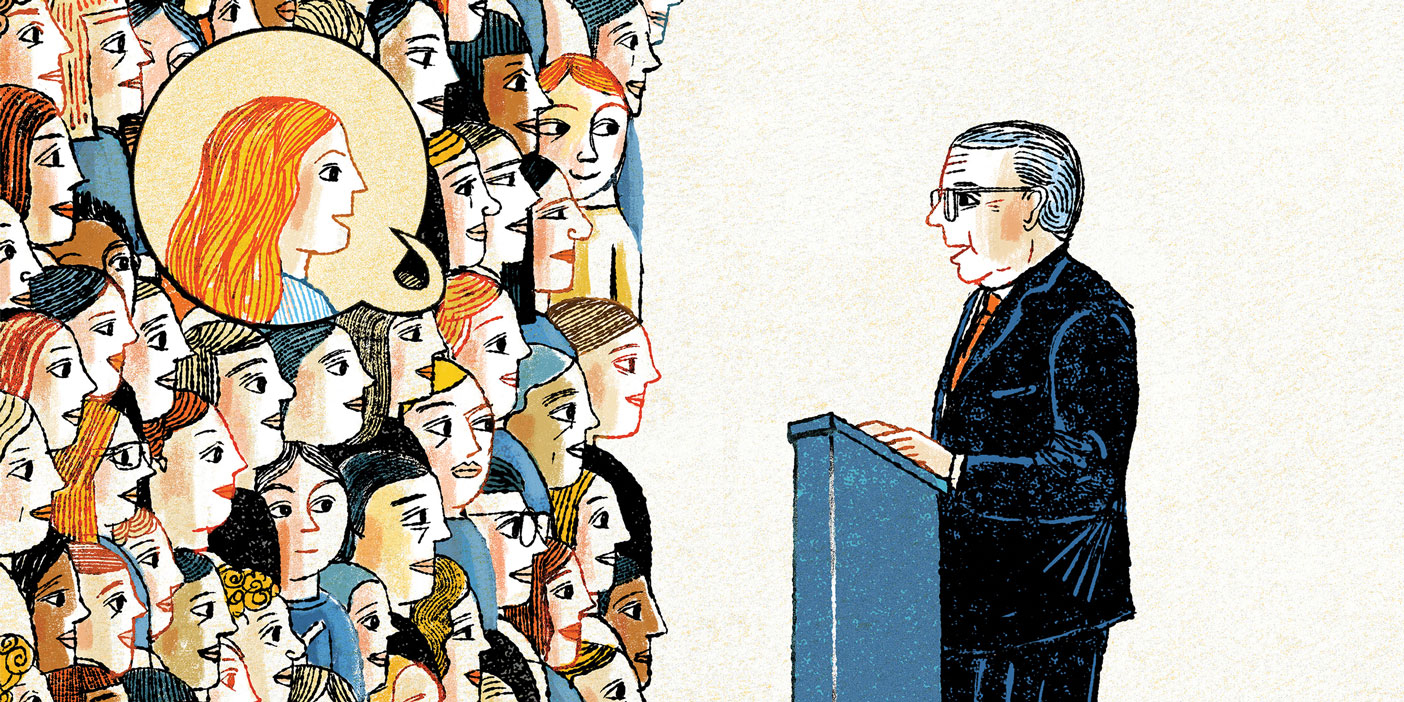Banishing All Shadows
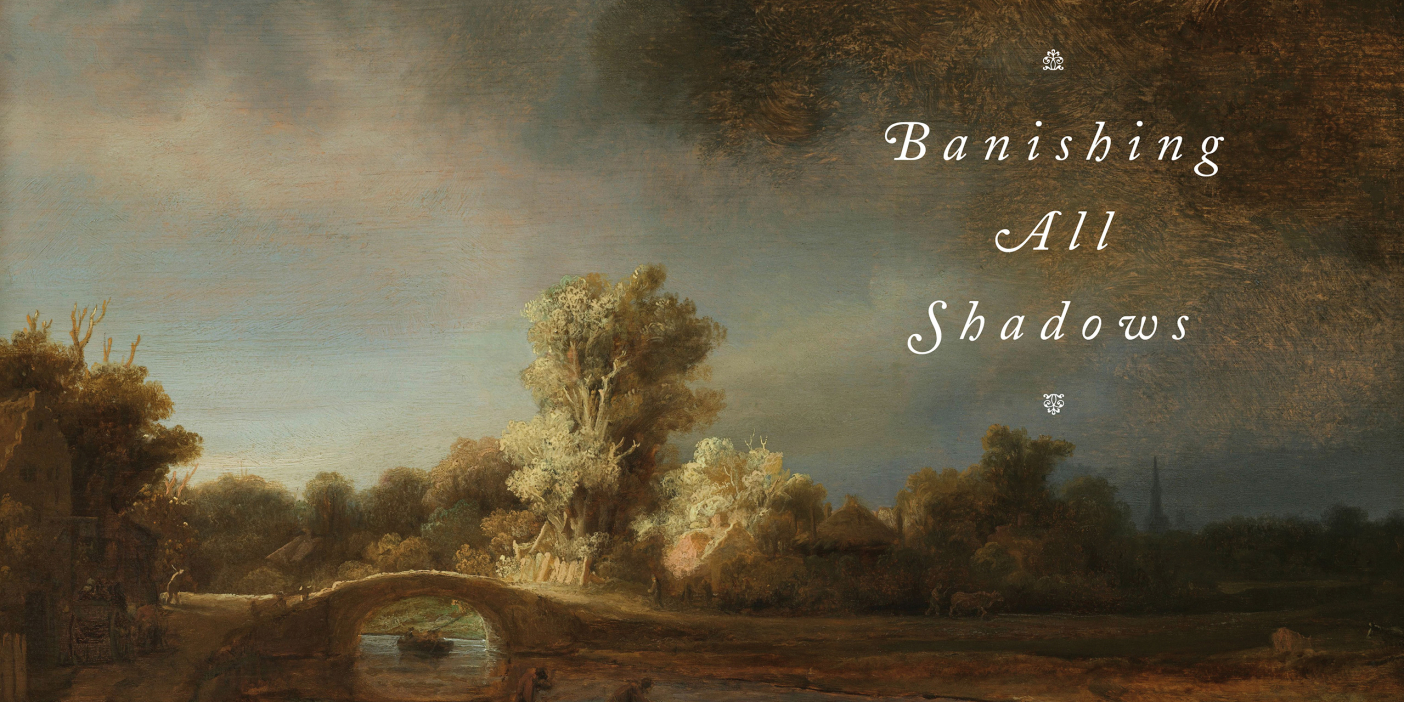
In his commencement speech, Elder Jeffrey R. Holland invites the graduating class to call upon God’s light.
By Jeffrey R. Holland (BS ’65, MA ’66) in the Summer 2018 Issue
For nine wonderful years I had the pleasant opportunity as BYU president to say to graduating students and their families that such a thrilling day of academic triumph was more than worth the difficult days it took to get here—on everyone’s part. I know firsthand what BYU does in providing an unequaled university experience, but I know equally well and even more tenderly the scrimping, saving, sacrifice, and hard work that many students and their parents have experienced in order to arrive at this moment. Mindful of that sacrifice in a grand cause—and education is a truly grand cause—I want this to be a terrifically happy day for every one of you. You have earned it. I pray that all your days may be so.
I was told I am to say something wise and original to you, but, being incapable of that, let me just remind you of one or two things you already know.
The sources I am going to quote are drawn from my undergraduate days at BYU. Oh, I can hear you groan now! A lesson in ancient history, you say. Lessons drawn from back before the earth’s geologic clock even started to tick. Yes, I am old, but indulge me. I do this in part just to prove to the faculty that sometimes students actually do remember some things they were taught here.
Bridling Ambition
My first reminder is a cautionary one. It comes from the man who rose in his time to become the most powerful layman in the entire British kingdom of his day, the masterful Thomas Wolsey, second only to the legendary Henry VIII himself in his influence over the king’s realm. His story is a warning—unneeded by you, I hope—against maneuvering the ladder of success so wantonly that you discover in the end you had it leaning against the wrong wall.
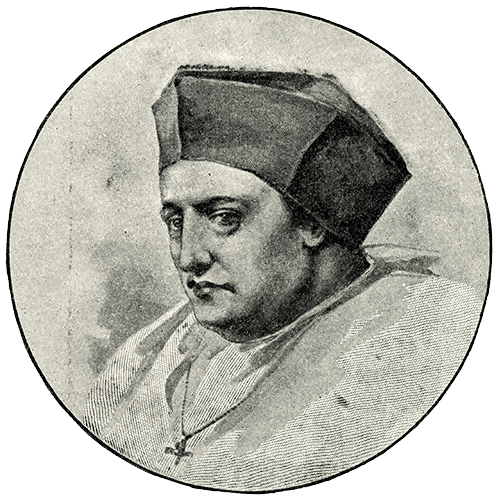
Wolsey was the son of an uneducated Suffolk butcher, but his driving ambition and immense talent brought him on a rapid rise through Oxford University and into the Catholic Church, where he quickly became chaplain to Henry VII.
But Wolsey’s fortunes prospered even more dramatically when Henry VIII ascended to the throne. Under him, Wolsey served as Archbishop of York and finally cardinal, becoming probably the most influential member of a king’s Privy Council before or since that time. Quickly enough he was the controlling figure in all matters of state and every political move made by his monarch. He loved display and wealth. He lived in royal splendor and reveled in his power.
Then Anne Boleyn came onto the scene. Young King Henry was determined to move heaven; earth; his wife, Catherine; and the Roman Catholic Church to have her, but the obstacles were nearly insurmountable. Henry told Wolsey to surmount them. Wolsey did not, because he could not, and the failure proved to be fatal.
Despite such a remarkable and virtually unprecedented rise to political power, Wolsey’s fall was sudden and complete. Unable to get Rome’s approval for a divorce, Wolsey was stripped by King Henry of every office and all his property, was accused of treason, and was ordered to appear in London for a trial that very likely would have carried an order of execution. In great distress, he set out for the capital to face his monarch. On the way he fell ill and died.
With the help of William Shakespeare, I invite you to think on Cardinal Wolsey’s “farewell” lament. To BYU graduates today, he says:
Farewell! a long farewell, to all my greatness!
This is the state of man: to-day he puts forth
The tender leaves of hopes; to-morrow blossoms,
And bears his blushing honours thick upon him;
The third day comes a frost, a killing frost,
And . . . nips his root,
And then he falls, as I do. . . .
. . . My high-blown pride
At length broke under me and now has left me,
Weary and old with service. . . .
. . . I charge thee, fling away ambition:
By that sin fell the angels; how can man, then,
The image of his Maker, hope to win by it?
Love thyself last: cherish those hearts that hate thee;
Corruption wins not more than honesty. . . .
Had I but served my God with half the zeal
I served my king, he would not in mine age
Have left me naked to mine enemies.¹
What a tragic end to such a gifted beginning! What a pathetic farewell to a life that held such promise! And where did it go wrong? It went wrong when Wolsey’s public ambition became more important than his personal integrity, when cutting moral corners was more advantageous than maintaining moral rectitude, when political power and unseemly wealth created a thirst for more and more of the same until honest living and responsible behavior could not quench that thirst and were jettisoned along the way, never to be regained.
If he could, I wonder if Cardinal Wolsey might raise his voice from the grave today, nearly five centuries after his precipitous fall, to quote to you a simple scripture he probably read more than once in his clerical duties: “For what is a man [or a woman] profited, if he shall gain the whole world, and lose his own soul? or what shall a man give in exchange for his soul?” (Matt. 16:26).
You leave BYU to enter a political, social, and economic world your parents never knew and your grandparents could never have dreamed of. Perhaps that is true of each succeeding generation in history, but in my old age, I, for one, could not have imagined as a BYU student more than half a century ago the world you now go forth to experience. So much of that world is stunningly beautiful and rewarding.
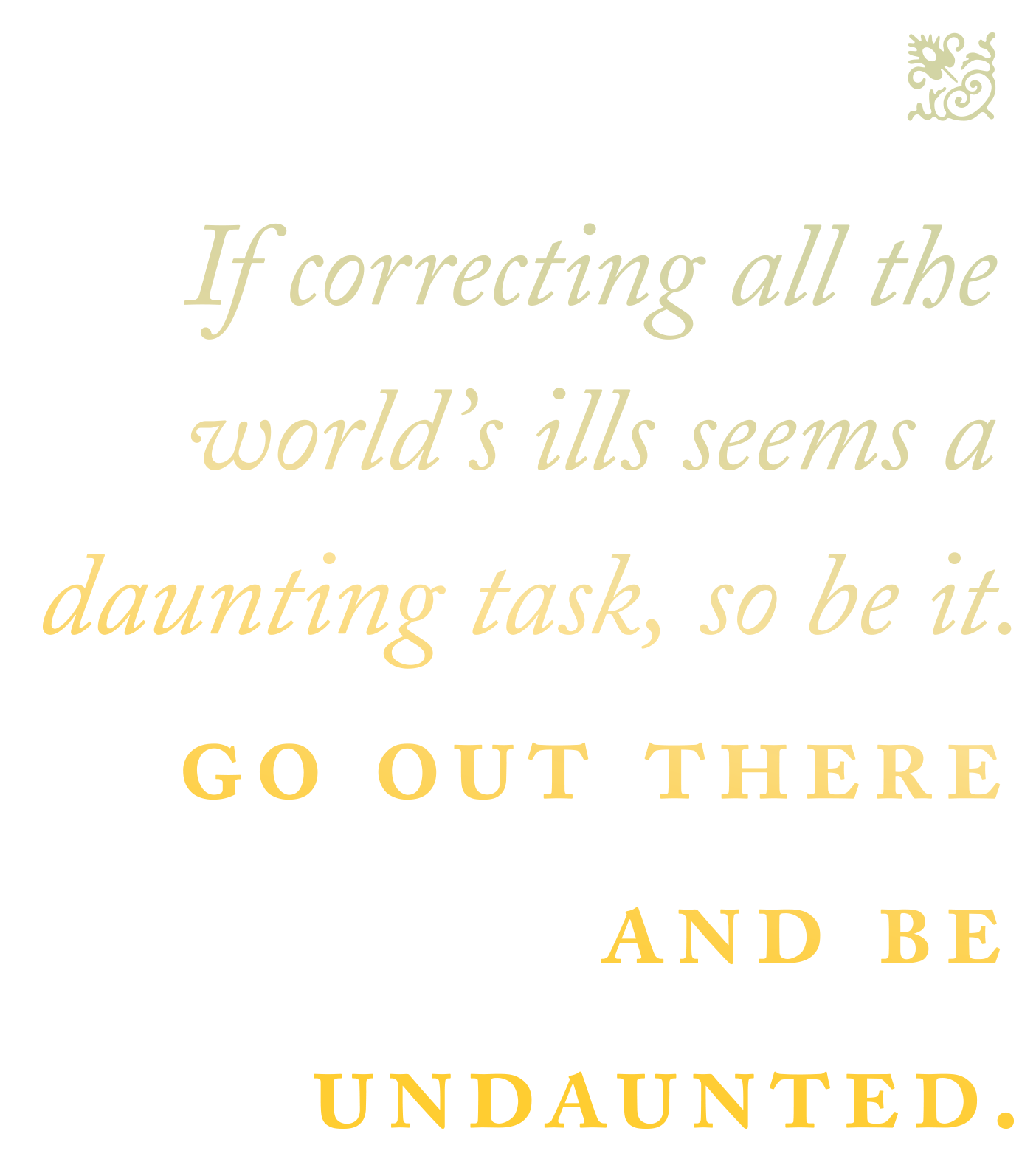
Do you realize that when I was a BYU student, my colleagues had to wait for perhaps a 3 a.m. opportunity to use for a few minutes the university’s one mainframe IBM computer on projects you can now almost literally—not quite—pursue on your laptop? (I was going to say your cell phone.) Almost nothing seems impossible now in the world of science, technology, and biomedicine, including such things as genetic engineering, artificial intelligence, and fetal surgery. And now you have cars that drive themselves and little cannisters that play your favorite music, answer your math problems, tell you what time it is in Uzbekistan, and butter your toast—all before you get out of bed!
But not everything is so rosy everywhere for everyone. In so many nations of the world, including parts of our own, it can be a time prophesied by my favorite Irish poet, who warned:
The falcon cannot hear the falconer;
. . . the centre cannot hold; . . .
. . . everywhere
The ceremony of innocence is drowned;
The best lack all conviction, while the worst
Are full of passionate intensity.²
I do not agree that “the best lack all conviction” because you, seated before me robed and hooded, and a host of good people across the earth like you prove otherwise. I believe you to be the very best, and I am counting on you to be consumed with conviction.
But alas, I fear that in too many cases “the worst [of our day] are full of passionate intensity.” No child should have to go to school fearful that they won’t live to see their parents that evening. No citizenry should have to live with a system—pick a nation, any nation, or put a pin in a world map almost at random—where corruption is rampant, where chaos is the order of the day, and where statesmanlike character, elevated (to say nothing of elegant) speech, and dignified personal behavior are seemingly alien concepts. No young people your age—or any age—ought to face conditions in so many places where poverty and abuse (including sexual abuse), malnutrition and disease, and human trafficking and terror are still the rule rather than the exception for too many people, including too many children.
Well, I don’t want to dwell on anything negative today, and you might say it has always been so down through time, and maybe it has. But it doesn’t have to be! So go out there and light a candle. Be a ray of light. Be your best self and let your character shine. Cherish the gospel of Jesus Christ and live it. The world needs you, and surely your Father in Heaven needs you if His blessed purposes for His children are to prevail. You have entered to learn. Now go forth to serve and strengthen. If correcting all the world’s ills seems a daunting task, so be it. Go out there and be undaunted. If we cannot look to you to change the world, tell me to whom we should look.
Darkness Always Yields To Light
Here is the reason that you can succeed—my second and only other reminder to you today. I give you encouragement from another Englishman, the gifted son of an ironmonger, a brilliant young man who studied law, traveled the world, and came home to find his true calling in poetry and the pulpit.
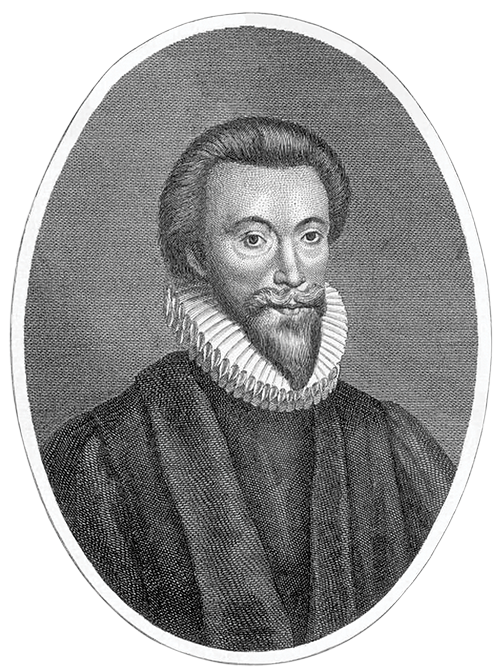
John Donne was arguably the greatest of all the metaphysical poets but was, as well, one who reached the pinnacle of ministerial success, becoming the dean of St. Paul’s Cathedral and preaching regularly before Charles I and the royal family. The best of his sermons are unequaled in the history of the English Church. Almost totally neglected for more than 300 years before being discovered, as it were, a century or so ago, John Donne returns from his grave to give BYU graduates a final word of confidence as you step out onto the path leading firmly to your future.
I have just said that the world you now enter holds challenges and difficulties. In the days and years ahead, you may suffer some discouragement and disappointment. On occasion you may feel genuine despair, either for yourself or for your children or for the plight and conditions of others. You may even make a personal mistake or two—serious mistakes, perhaps, though I hope not—and you may worry that any chance to be happy and secure in life has eluded you forever.
When such times come, I ask you to remember this: This is the Church of the happy endings. Troubles need never be permanent nor fatal. Darkness always yields to light. The sun always rises. Faith, hope, and charity will always triumph in the end. Furthermore, they will triumph all along the way.
Our English preacher said of this:
We ask our daily bread, and God never says you should have come yesterday, he never says [I have run out,] you must [come] again to-morrow, but to-day if you will hear his voice, to-day he will hear you. . . . God . . . brought light out of darkness, not out of a lesser light; he can bring thy summer out of winter, though thou [had] no [hope of ] spring; though in the ways of fortune, or [mis]understanding, or conscience, thou [hast] been benighted till now, wintred and frozen, clouded and eclipsed, damp and benumbed, smothered and stupefied till now, . . . God [yet] comes to thee, not as in the dawning of the day, not as in the bud of the spring, but as the sun at [full] noon, to [banish] all shadows, as the sheaves in harvest, to fill all penuries, all occasions invite his mercies, and all times are his seasons.³
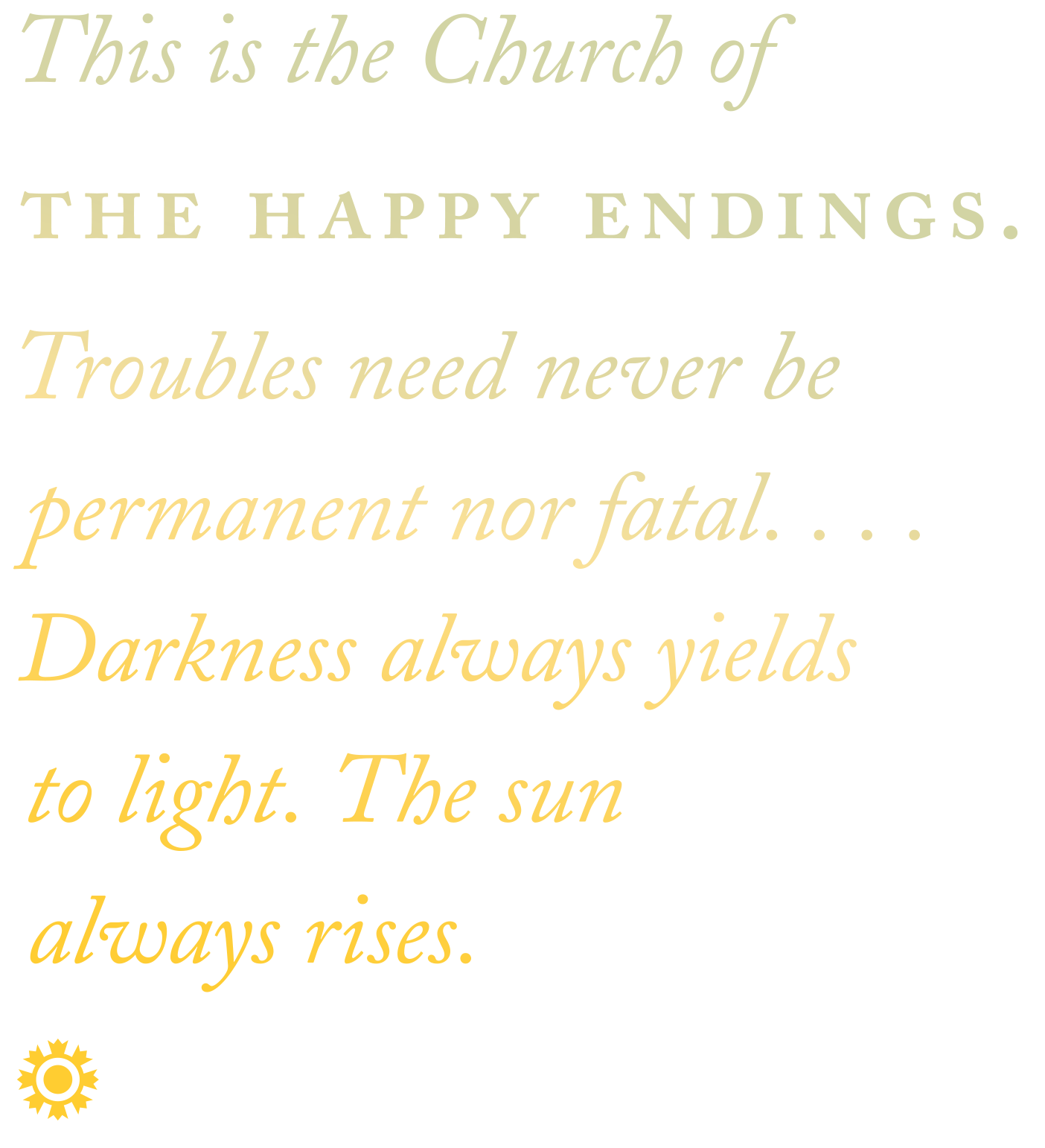
With all else you have learned here, may you leave this great school—which I love with all my heart—secure in the promise of God’s unfailing love for you and the redeeming blessings that flow forever from the gospel of Jesus Christ. You undoubtedly will have days, to quote Mr. Donne, when you may feel dark, cold, “clouded,” or “eclipsed.” But if you desire God’s mercy, I promise that help will come to you, “not as in the dawning of the day, not as in the bud of the spring, but as the sun at [full] noon,” banishing every shadow. All occasions invite divine mercy, and in heaven it is always harvest time. Be secure and safe, today and always, in the victory of the kingdom of God over the troubles and ills of mortality. I am more certain of that victory than I am of any other thing I have ever learned—in college or out.
Congratulations on your very significant achievement. As an apostle of the Lord Jesus Christ, I bless you today with abundant promise and profound peace regardless of challenges that you may now be facing or those that may yet come. I bless you to cultivate lives of service and spiritual strength, lives of character and integrity and moral fidelity, and lives that will bring you confidence when you stand in the presence of God our Eternal Father, as all of us surely will on another kind of graduation day yet ahead. Until then, may the sun always be at full noon for you, banishing every shadow that might otherwise mar your happiness. I express our pride in you and wish you Godspeed for the exciting journey you now undertake.
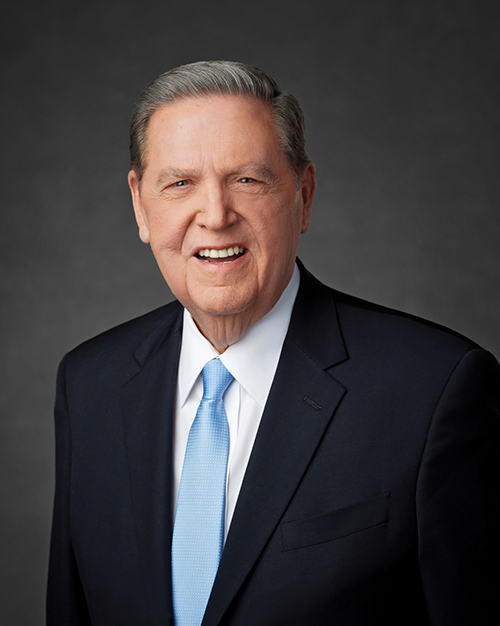
Jeffrey R. Holland, a member of the Quorum of the Twelve Apostles of The Church of Jesus Christ of Latter-day Saints, delivered this commencement address on April 26, 2018. The address can be found in a variety of formats at speeches.byu.edu.
Send comments on this article to magazine@byu.edu.
NOTES
- William Shakespeare, King Henry the Eighth, act 3, scene 2, lines 351–63, 440–44, 455–57.
- William Butler Yeats, “The Second Coming” (1921), stanza 1.
- John Donne, “Sermon II. Preached in the Evening of Christmas Day, 1624,” in The Works of John Donne: With a Memoir of His Life, ed. Henry Alford (London: John W. Parker, 1839), 1:25; emphasis in original.


